Welcome to the Amira-Avizo Software Use Case Gallery
Below you will find a collection of use cases of our 3D data visualization and analysis software. These use cases include scientific publications, articles, papers, posters, presentations or even videos that show how Amira-Avizo Software is used to address various scientific and industrial research topics.
Use the Domain selector to filter by main application area, and use the Search box to enter keywords related to specific topics you are interested in.
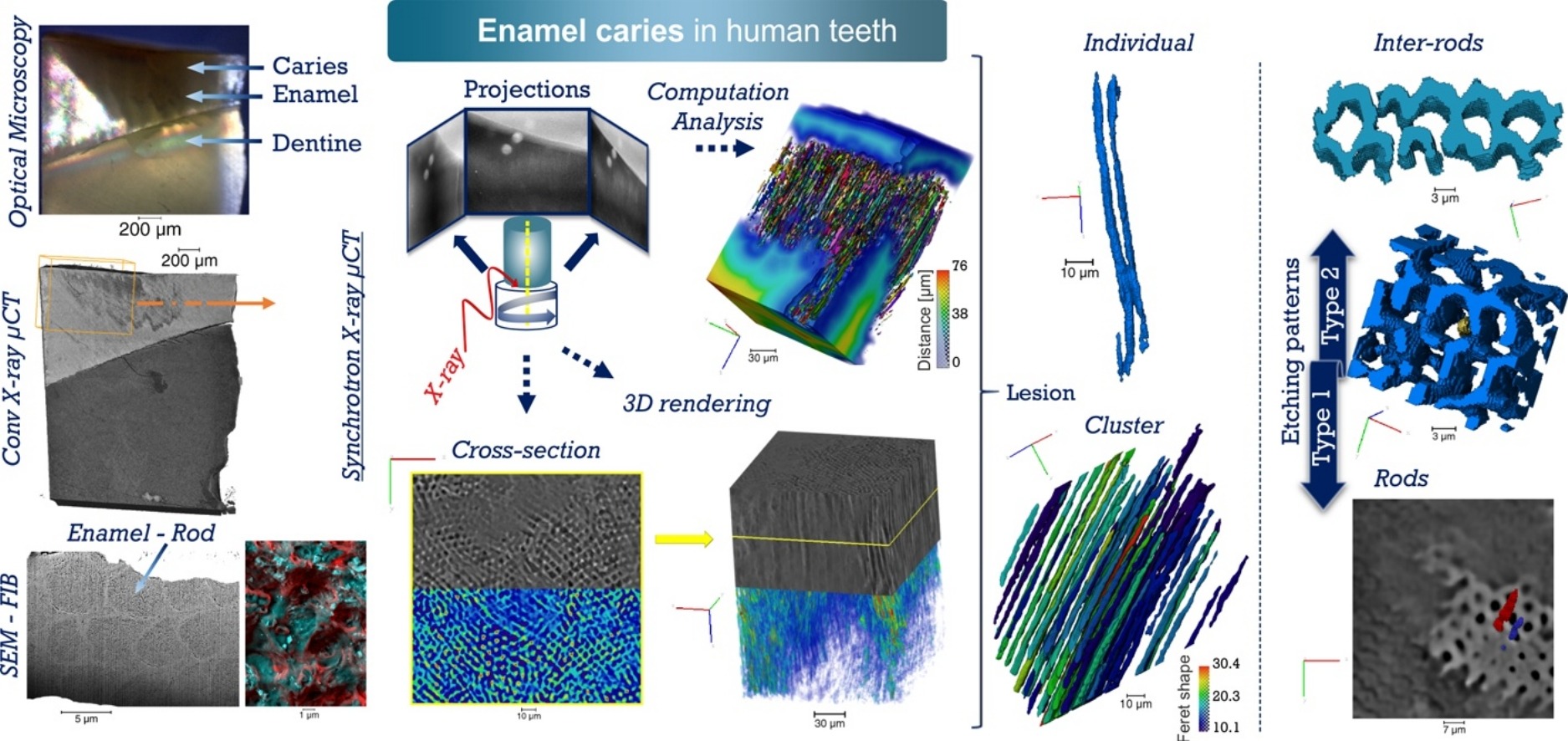
Unprecedented combination of resolution, field of view and contrast for the analysis human enamel carious lesions was achieved. Synchrotron X-ray micro-computed tomography revealed sub-micron details of enamel rod and inter-rod regions inaccessible by laboratory tomography. Successful segmentation and labelling allowed the extraction of enamel etching patterns and statistics. Correlation was obtained between synchrotron X-ray micro-tomography and FIB-SEM cross-sec... Read more
Cyril Besnard, Robert A. Harper, Thomas E. J. Moxham, Jonathan D. James, Malte Storm, Enrico Salvati, Gabriel Landini, Richard M. Shelton, Alexander M.Korsunsky
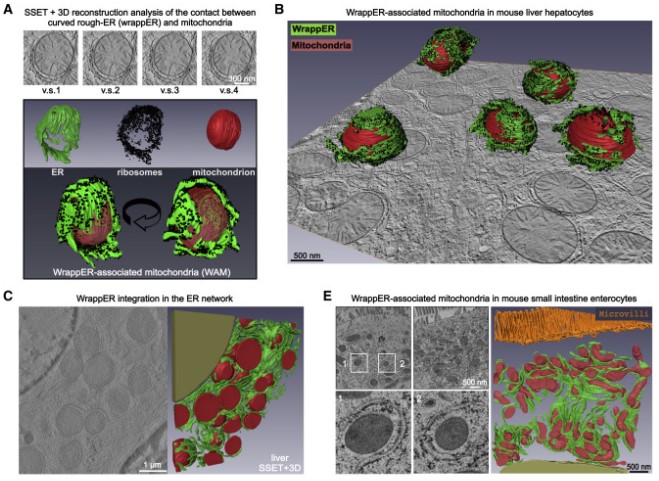
Mitochondria-rough-ER contacts in the liver regulate systemic lipid homeostasis
In this work, we studied mitochondria-rER contacts in vivo by serial section electron tomography (SSET) and 3D reconstruction analysis of cryo-fixed mouse tissue samples. We characterized this inter-organelle association as mitochondria tightly wrapped by sheets of curved rER (wrappER). Further, we used multi-omics and genetic approaches to obtain evidence that the wrappER is a distinct intracellular compartment and demonstrate the importance of wrappER-mitochondria contacts for v... Read more
Irene Anastasia, Nicolò Ilacqua, Andrea Raimondi, Philippe Lemieux, Rana Ghandehari-Alavijeh, Guilhem Faure, Sergei L. Mekhedov, Kevin J. Williams, Federico Caicci, Giorgio Valle, Marta Giacomello, Ariel D. Quiroga, Richard Lehner, Michael J. Miksis, Katalin Toth, Thomas Q. de Aguiar Vallim, Eugene V. Koonin, Luca Scorrano, Luca Pellegrini
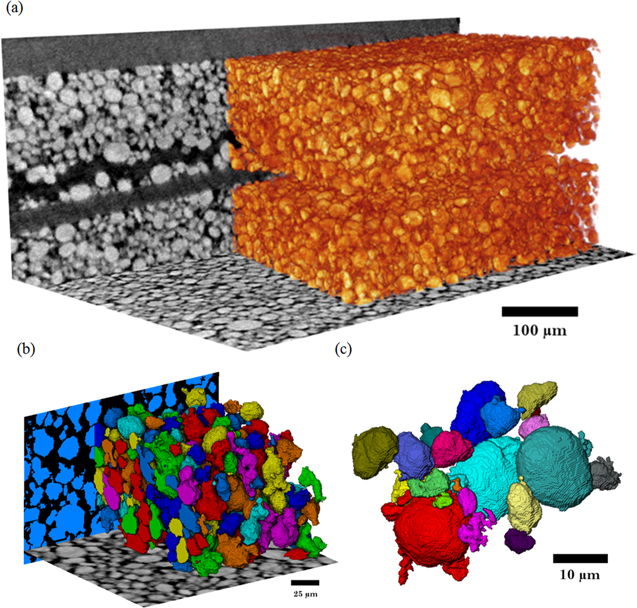
Thermal Runaway of a Li-Ion Battery Studied by Combined ARC and Multi-Length Scale X-ray CT
Lithium ion battery failure occurs across multiple length scales. In this work, the properties of thermal failure and its effects on electrode materials were investigated in a commercial battery using a combination of accelerating rate calorimetry (ARC) and multi-length scale X-ray computed tomography (CT). ARC measured the heat dissipated from the cell during thermal runaway and enabled the identification of key thermal failure characteristics such as onset temperature and the rate of heat g... Read more
Drasti Patel, James B. Robinson, Sarah Ball, Daniel J. L. Brett and Paul R. Shearing
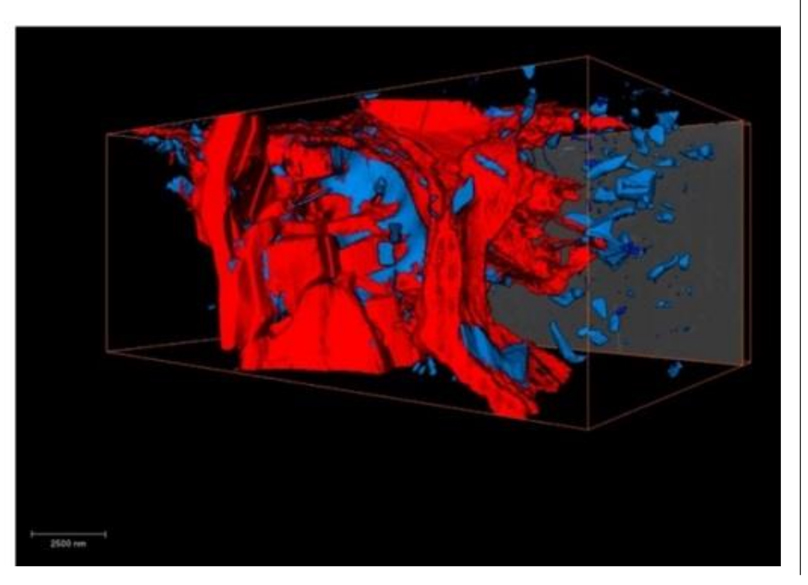
High market demands related to material quality and properties strongly influence redesigning of common safety loaded aluminum alloy castings. The quality of aluminum components and associated obtained mechanical properties are strongly dependent on the casting process and parameters, as well as on the chemical composition. Therefore, the redesigning of chemical composition of high-strength aluminum alloys becomes significant for safety critical structural components in automotive industry.Read more
Davor Stanić, Zdenka Zovko Brodarac, Letian Li
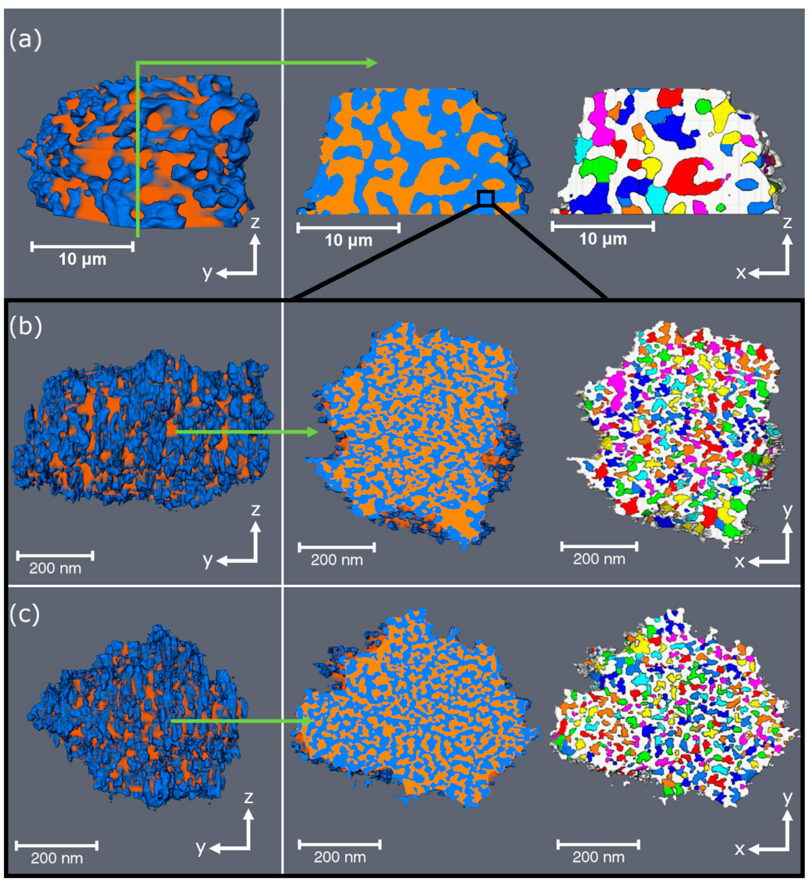
Porosity and Structure of Hierarchically Porous Ni/Al2O3 Catalysts for CO2 Methanation
Carbon dioxide emissions must be reduced significantly to limit the negative consequences of climate change. For this reason, fossil fuels must be replaced by renewable energy sources. However, wind and solar energy, for example, are sporadic sources and, thus, not inevitably available when needed. This results in periods of energy surplus and shortage, which are not necessarily predictable. Hence, energy storage concepts are required to compensate for these fluctuations, thereby retaining en... Read more
Sebastian Weber, Ken L. Abel, Ronny T. Zimmermann, Xiaohui Huang, Jens Bremer, Liisa K. Rihko-Struckmann, Darren Batey, Silvia Cipiccia, Juliane Titus, David Poppitz, Christian Kübel, Kai Sundmacher, Roger Gläser, Thomas L. Sheppard
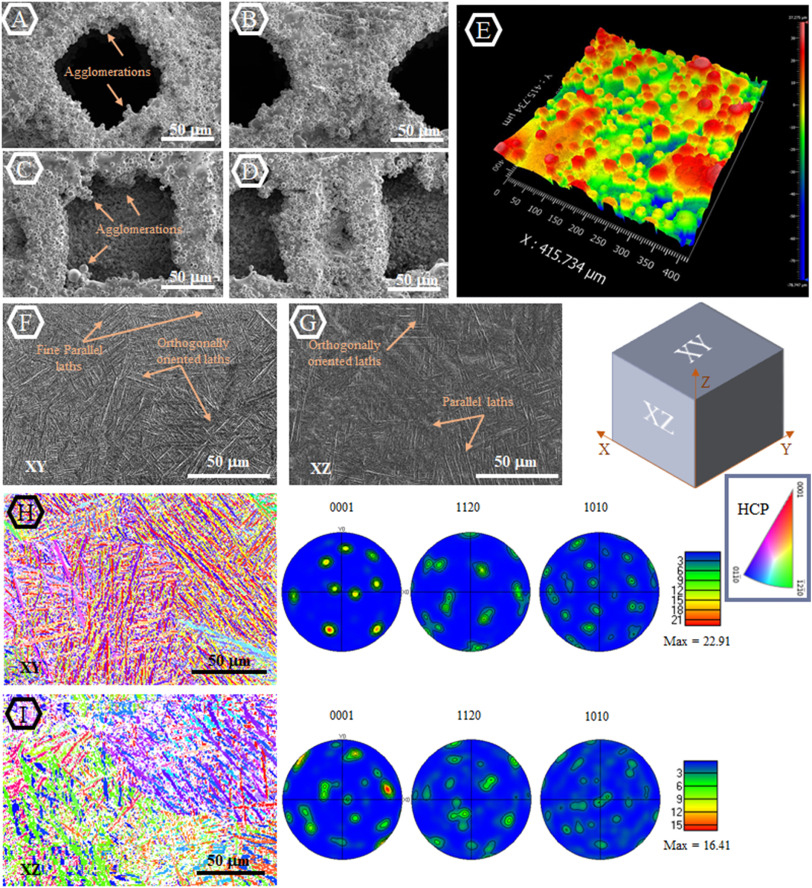
Material synthesis techniques have been historically used to engineer the mechanical and biological properties of biomaterials. Despite the overall success of this approach in different fronts […] there are still major unaddressed challenges due to the limited range of material properties that can be obtained through such synthesis techniques […]. Recent advances in additive manufacturing (AM) have initiated a new paradigm, which could facilitate better control of mechanical and b... Read more
Maryam Tilton, Alireza Borjali, Aaron Isaacson, Kartik Mangudi Varadarajan, Guha P.Manogharan
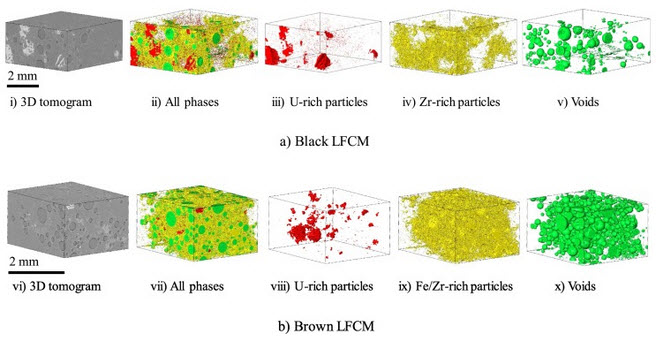
Decommissioning of the damaged Chernobyl nuclear reactor Unit 4 is a top priority for the global community. Before such operations begin, it is crucial to understand the behaviour of the hazardous materials formed during the accident. Since those materials formed under extreme and mostly unquantified conditions, modelling alone is insufficient to accurately predict their physical, chemical and, predominantly, mechanical behaviour. Meanwhile, knowledge of the mechanical characteristics of thos... Read more
C.Paraskevoulakos, J.P.Forna-Kreutzer, K.R.Hallam, C.P.Jones, T.B.Scott, C.Gausse, D.J.Bailey, C.A.Simpson, D.Liu, C.Reinhard, C.L.Corkhill, M.Mostafavi
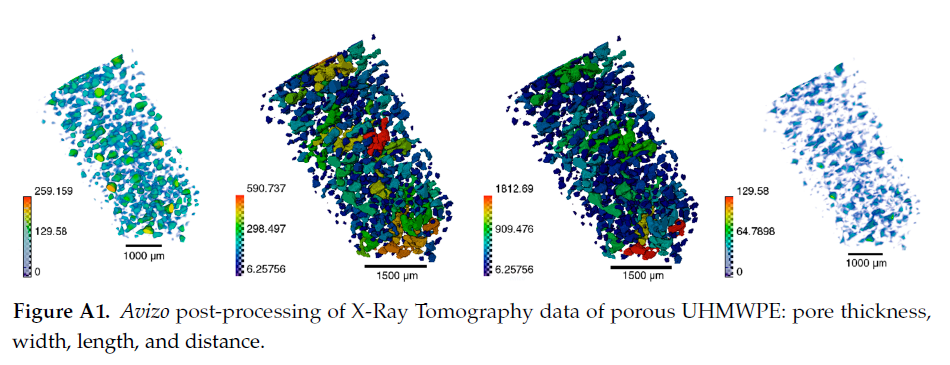
Since its invention and commercialization in the 1950s, ultra-high molecular weight polyethylene (UHMWPE) has been known as a high-performance polymer successfully applied in diverse engineering systems ranging from strong ropes for naval demands and wear-resistant liners in bearings, transportation belts and heavy trucks in mines and quarries, through the lining of chemical vessels and disposable bags in bioreactors, to sophisticated products such as orthopaedic implants and replacements of ... Read more
Eugene S. Statnik, Codrutza Dragu, Cyril Besnard, Alexander J.G. Lunt, Alexey I. Salimon, Aleksey Maksimkin and Alexander M. Korsunsky

Defect structure process maps for laser powder bed fusion additive manufacturing
Accurate detection, characterization, and prediction of defects has great potential for immediate impact in the production of fully-dense and defect free metal additive manufacturing (AM) builds. Accordingly, this paper presents Defect Structure Process Maps (DSPMs) as a means of quantifying the role of porosity as an exemplary defect structure in powder bed printed materials. Synchrotron-based micro-computed tomography (μSXCT) was used to demonstrate that metal AM defects follow predictable... Read more
Jerard V.Gordon, Sneha P.Narra, Ross W.Cunningham, He Liu, Hangman Chen, Robert M.Suter, Jack L.Beuth, Anthony D.Rollett
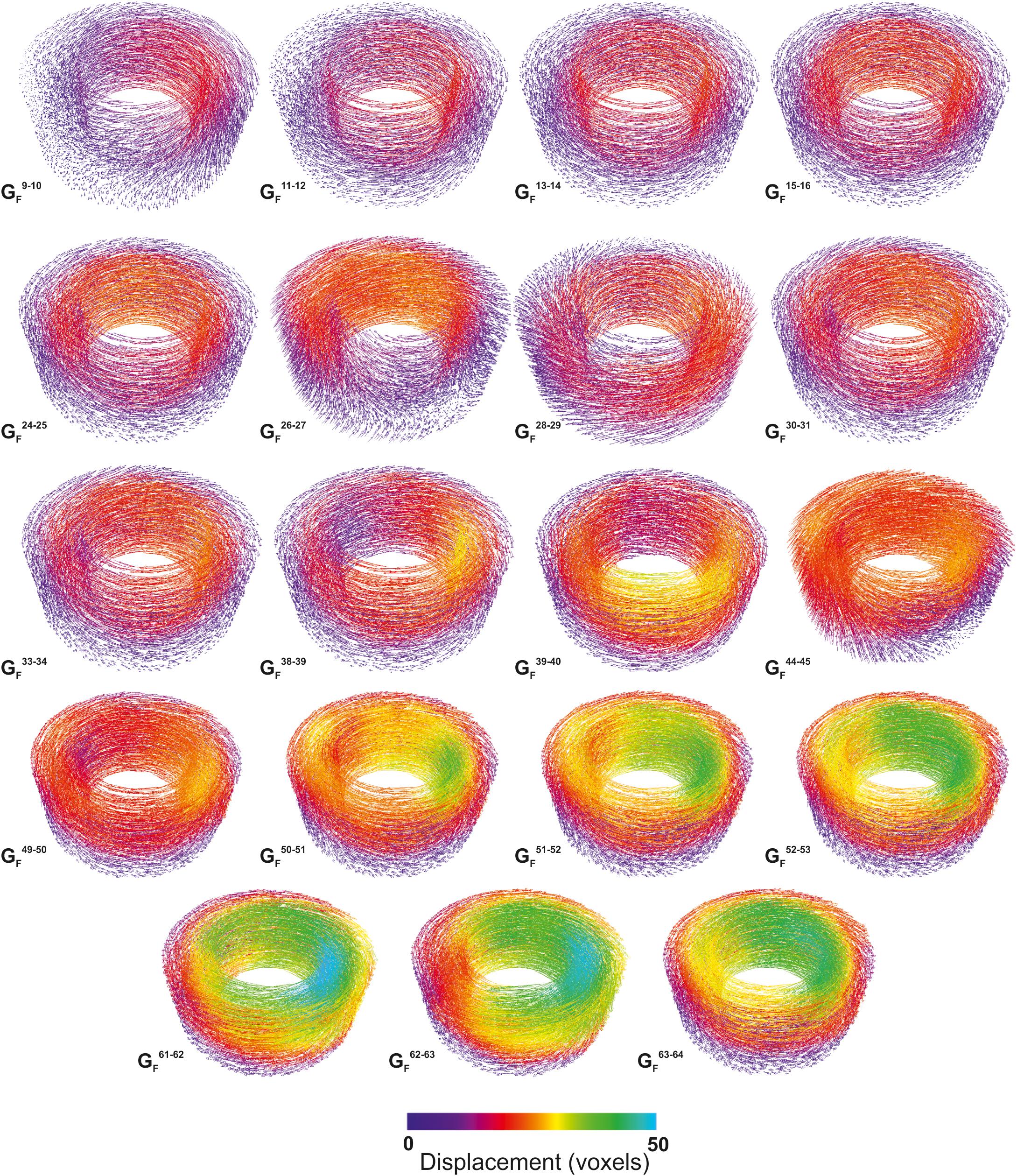
Quantifying Microstructural Evolution in Moving Magma
Many of the grand challenges in volcanic and magmatic research are focused on understanding the dynamics of highly heterogeneous systems and the critical conditions that enable magmas to move or eruptions to initiate. However, we are usually unable to observe the processes directly. Here we give a short synopsis of the new capabilities and highlight the potential insights that in situ observation can provide. We present the first 3D data showing the evolving textural heterogeneity within a sh... Read more
Katherine J. Dobson1, Anja Allabar, Eloise Bretagne, Jason Coumans, Mike Cassidy, Corrado Cimarelli, Rebecca Coats, Thomas Connolley, Loic Courtois, Donald B. Dingwell, Danilo Di Genova, Benjamin Fernando, Julie L. Fife, Frey Fyfe, Stephan Gehne, Thomas Jones, Jackie E. Kendrick, Helen Kinvig, Stephan Kolzenburg, Yan Lavallée, Emma Liu, Edward W. Llewellin, Amber Madden-Nadeau, Kamel Madi, Federica Marone, Cerith Morgan, Julie Oppenheimer, Anna Ploszajski, Gavin Reid, Jenny Schauroth, Christian M. Schlepütz, Catriona Sellick, Jérémie Vasseur, Felix W. von Aulock, Fabian B. Wadsworth, Sebastian Wiesmaier and Kaz Wanelik
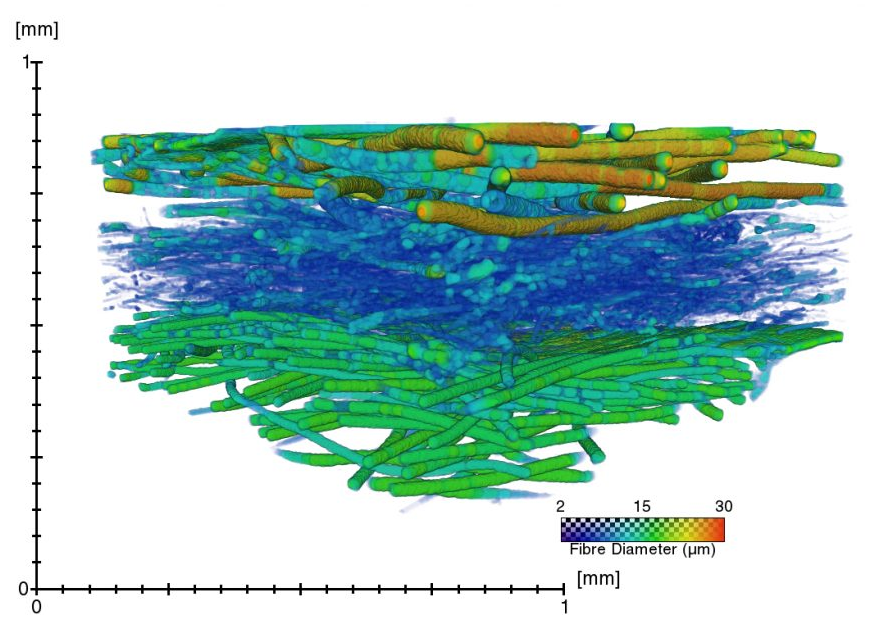
A virtual testing platform for filter materials and textile masks
In order to provide the population with consistent and science-based advice on preferred materials for face masks, we are characterizing the microstructure of different materials using X-ray microfocus computed tomography (microCT), and we use these datasets to simulate the pressure drop (i.e. measure for breathability). We validate our measurements with physically measured filter efficiency and pressure drop, and in this way, we try to develop a “virtual testing platform” for the charac... Read more
The ContrasTTeam of Prof. dr. Greet Kerckhofs, UCLouvain and MTM
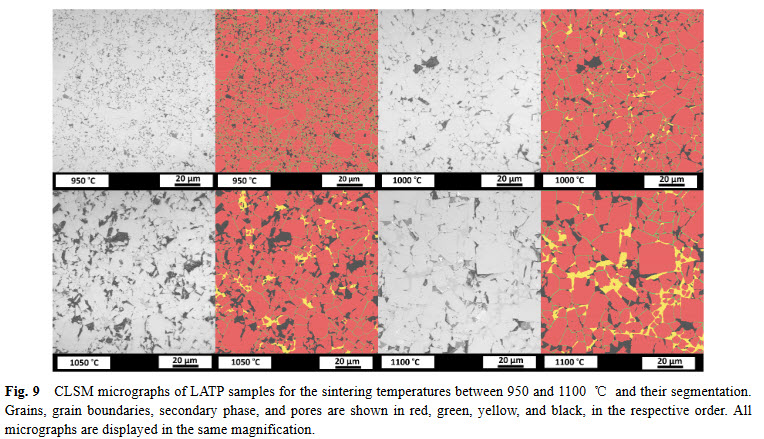
Lithium aluminum titanium phosphate (LATP) is one of the materials under consideration as an electrolyte in future all-solid-state lithium-ion batteries. In ceramic processing, the presence of secondary phases and porosity play an important role. In a presence of more than one secondary phase and pores, image analysis must tackle the difficulties about distinguishing between these microstructural features. In this study, we study the phase evolution of LATP ceramics sintered at temperatures b... Read more
Deniz Cihan GUNDUZ, Roland SCHIERHOLZ, Shicheng YUa, Hermann TEMPEL, Hans KUNGL, Rüdiger-A. EICHEL
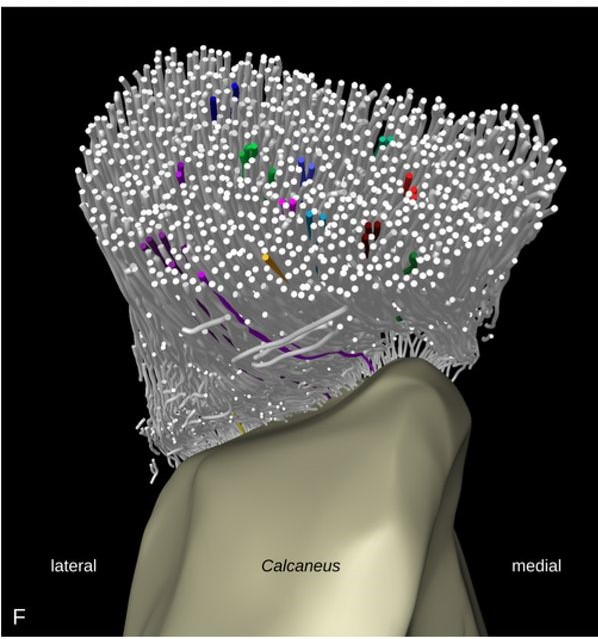
Tracking tendon fibers to their insertion – a 3D analysis of the Achilles tendon enthesis in mice
Tendon insertions to bone are heavily loaded transitions between soft and hard tissues. The fiber courses in the tendon have profound effects on the distribution of stress along and across the insertion. We tracked fibers of the Achilles tendon in mice in micro-computed tomographies and extracted virtual transversal sections. The fiber tracks and shapes were analyzed from a position in the free tendon to the insertion with regard to their mechanical consequences. The fiber number was found to... Read more
Julian Sartori, Heiko Stark
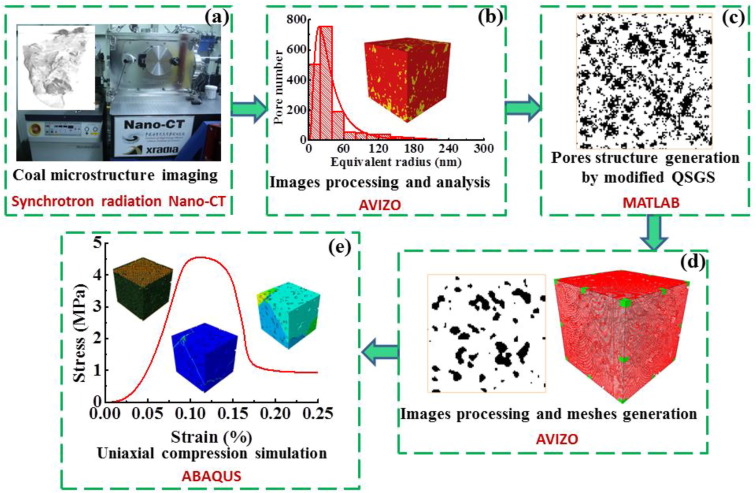
Impact of nanopore structure on coal strength
In China’s energy consumption structure, coal is the main energy source, accounting for about 60% of primary energy consumption. Coal is a porous medium with complex pore structures. Nanopore structure in coal particle is the basic underlying factor driving coal particle strength. A better knowledge of nanopore structure – coal particle strength correlation is of great significance for coal mining and other fields of engineering problems.
Read more
Yixin Zhao - Liang Yuan - QuanXue
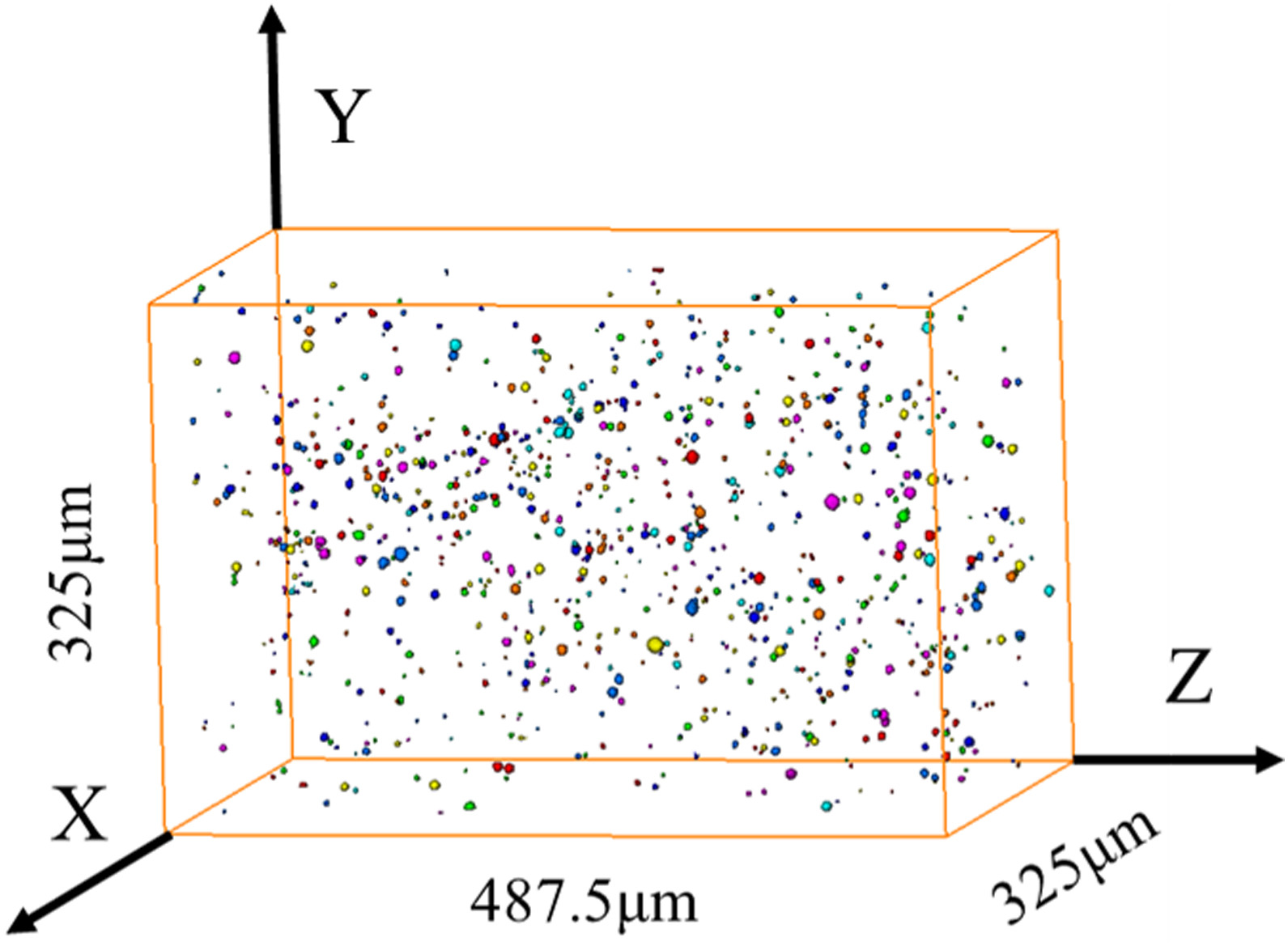
Three-dimensional characterization of typical inclusions in steel
The non-metallic inclusions are mostly harmful to the propertiesof the steel products. The effective characterization of the size, morphology, and distribution of the inclusions in steel is a key issue to remove and control the inclusions in the Read more
Zhiqiang Shang, Tao Li; Shufeng Yang, Jianchuan Yan, Han Guod
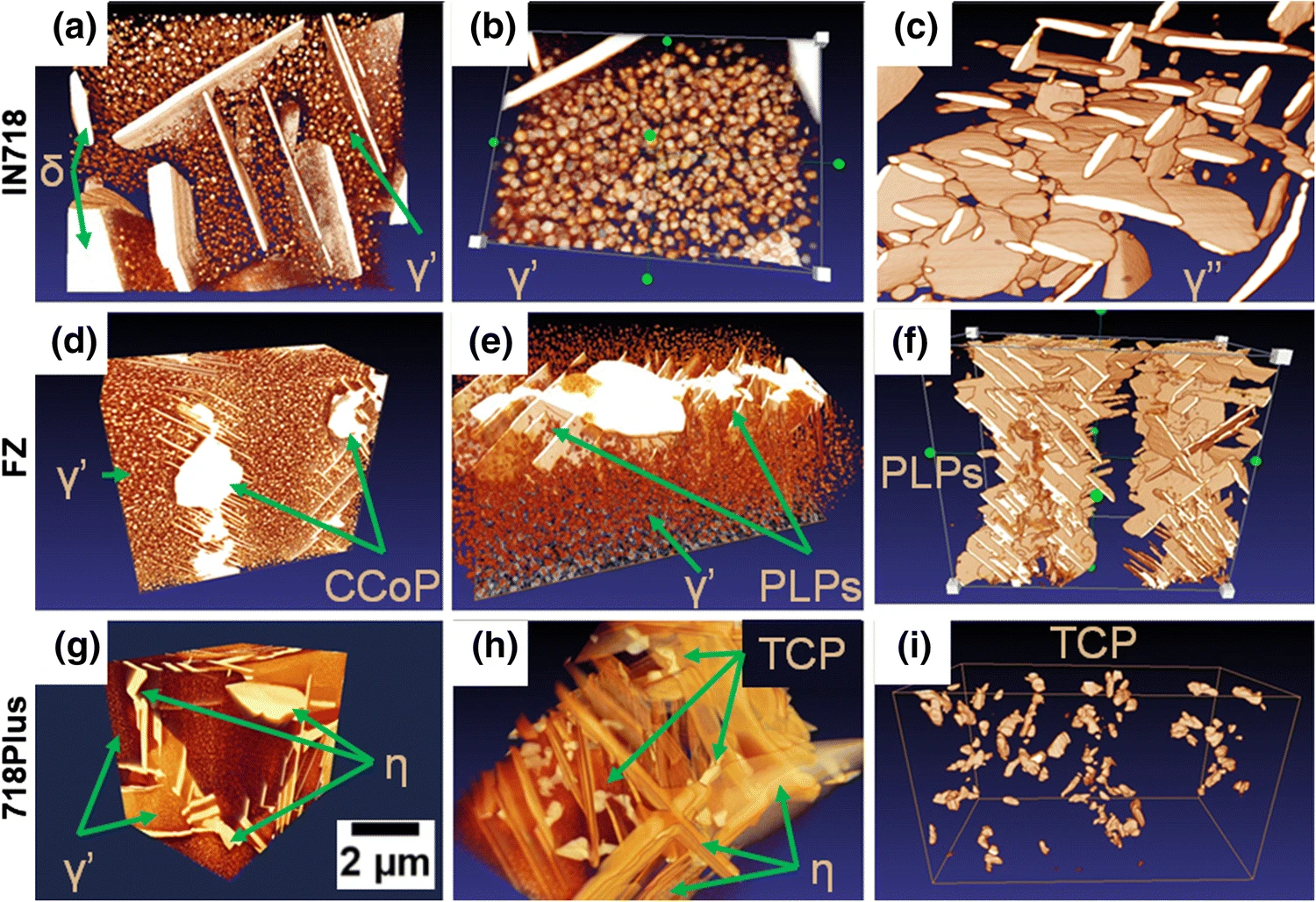
Inconel 718 (IN718) is the most popular precipitation-strengthened nickel-based superalloy introduced by the Huntington Alloys Division of INCO in 1959 (Ref Read more
Oskar Dziuba, Grzegorz Cempura, Agnieszka Wusatowska-Sarnek & Adam Kruk
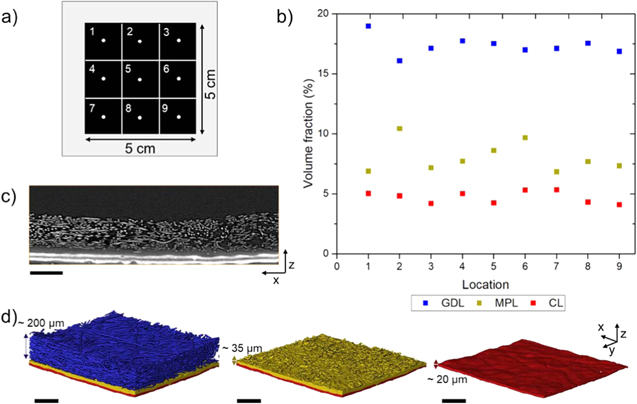
With the growing use of X-ray computed tomography (X-ray CT) datasets for modelling of transport properties, comes the need to define the representative elementary volume (REV) if considering three dimensions or the representative elementary area (REA) if considering two dimensions. The resolution used for imaging must be suited to the features of interest in the sample and the region-of-interest must be sufficiently large to capture key information. Polymer electrolyte fuel cells have a hier... Read more
Jennifer Hack et al 2020 J. Electrochem.
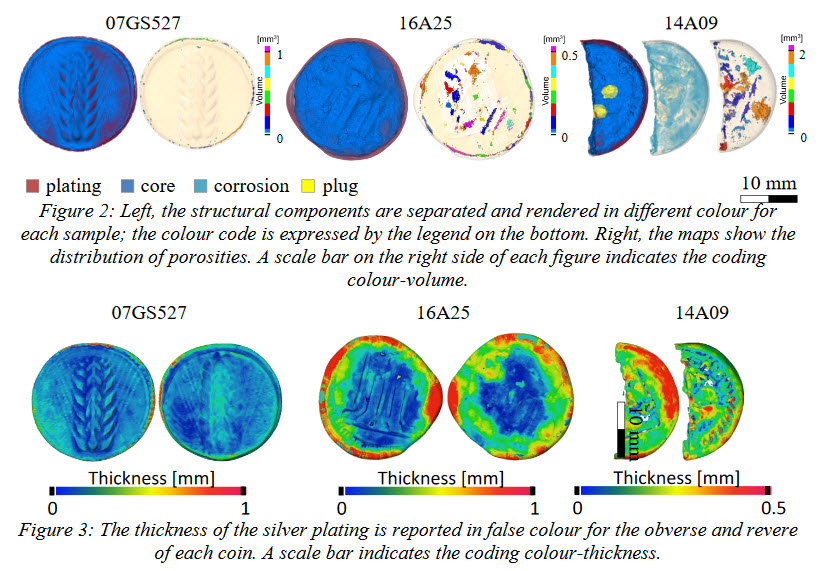
A Neutron Tomographic Analysis of Plated Silver Coins from Ancient Greece Official or Illegal?
In the 6th century BC different techniques of coin manufacture were employed by mints in mainland Greece and in the Greek colonies in Southern Italy. In Greece these techniques were evidently derived from the Lydians and consisted in striking a piece of cast metal of predetermined weight (a ‘blank’ or flan) between two engraved dies made of hardened bronze. Colonies in Magna Graecia, however, uniquely developed another set of minting techniques to produce what today is called incuse coina... Read more
Scott Olsen, Filomena Silvemini, Ulf Garbe, Max Avdeev, Joel Davis, Vladimir Luzin, Ken Sheedy
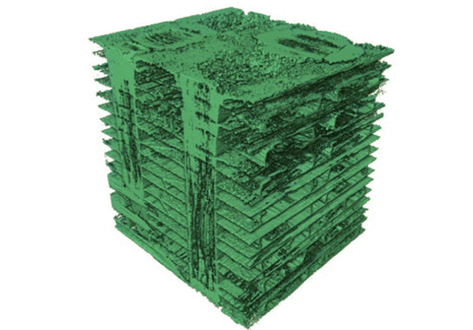
The microstructure morphologies have been characterized by high resolution laboratory X-ray computed tomography in Carbon Fiber Reinforced Carbon and Silicon Carbide (C/C-SiC) ceramic composites fabricated by Gaseous Silicon Infiltration (GSI) from C/C preforms of three different architectures: 3D stitched cloth fabric; 3D orthogonal woven fabric; and needled short-cut felt. Each composites’ microstructure was influenced by the structure of the C/C preform. By incorporating tomography with ... Read more
Fan Wan, Talha, J. Pirzada, Rongjun Liu, Yanfei Wang, Changrui Zhang, Thomas James Marrow
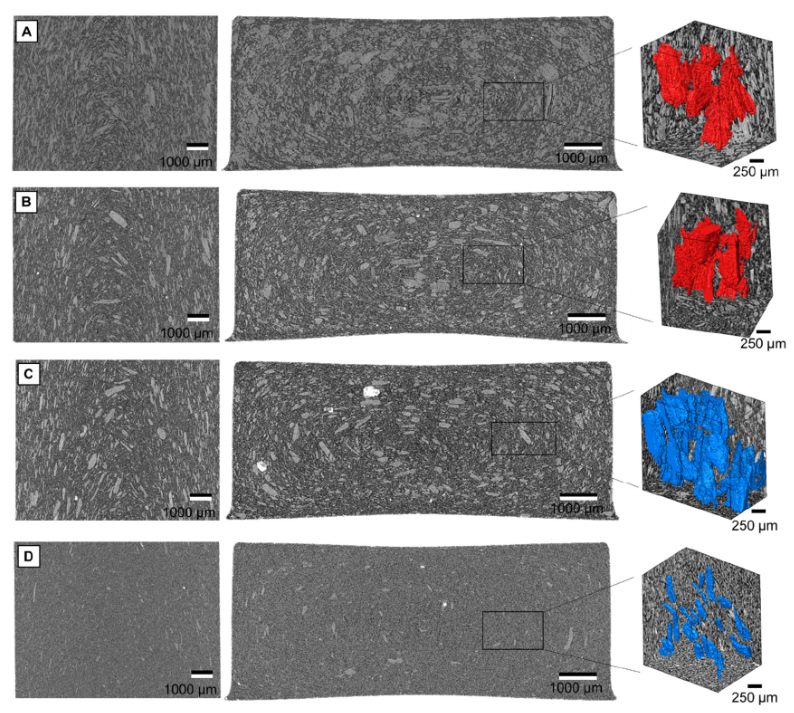
In this study, various wood material sources were used for the manufacture of wood-polymer composites (WPC). The materials were categorised as virgin wood particles (VWP), reprocessed WPC particles (RWP) and recycled thermoset composite particles (RCP) and derived from two virgin wood sources, three-layer particle boards, medium-density fibre boards (MDF) boards,or two different wood/polypropylene composites. All produced wood-polypropylene compounds contained 60% wood material and were manu... Read more
Kim Christian Krause, D, Philipp Sauerbier, Tim Koddenberg and Andreas Krause
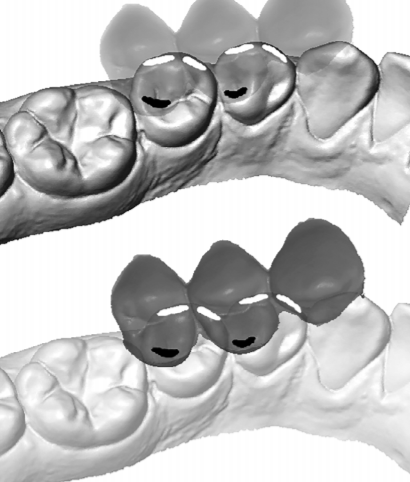
Variation of 3D outer and inner crown morphology in modern human mandibular premolars
This study explores the outer and inner crown of lower third and fourth premolars (P3, P4) by analyzing the morphological variation among diverse modern human groups.
We studied three‐dimensional models of the outer enamel surface and the enamel–dentine junction (EDJ) from μCT datasets of 77 recent humans using both an assessment of seven nonmetric traits and a standard geometric morphometric (GM) analysis. For the latter, the dental crown was represented by ... Read more
Viktoria A. Krenn, Cinzia Fornai, Lisa Wurm, Fred L. Bookstein, Martin Haeusler, Gerhard W. Weber